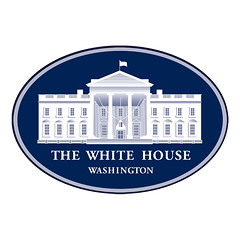Jean Purcell
 |
| Wikipedia image |
I wanted to run things by Elizabeth, to find out if maybe she remembered meeting Ruth's odd granddaughter. Anywhere. When I called, I went into messaging.
When E called back, I gave her a blow by blow of Catherine's visit.
At one point, E defended Catherine. Even after she learned that Catherine had refused to believe that she is my daughter.
My slanted profile of Catherine ended in a kind, I thought, nutshell: "She has a very bad way of expressing herself."
"Maybe she's the nervous, impulsive type," E said. "Or, as you say, not a good communicator. It's a shame. I know you and her grandmother Ruth were so close."
"Close, yes. But you are my daughter!"
"But Mom," she continued, "this isn't new, is it?"
"Yes it is, E, in its harshness. She was so insistent, almost brutally so!"
"I don't know if I've ever met her. I meet so many people, and I can't remember everyone. I wish I could help. But my identity our family is unchangeable, thank God. I mean it, nothing anyone says can change that for any of us."
She said it so sweetly, then said she needed to go soon.
We said goodbyes and I reflected how my daughter, who grew up under...now a cloud, but a challenge, daily...became so unusually successful as a neurosurgeon, and how she is able to slough off non-medical matters, even rejections. I wished I could do as she does. So like her father.
"Yes it is, E, in its harshness. She was so insistent, almost brutally so!"
"I don't know if I've ever met her. I meet so many people, and I can't remember everyone. I wish I could help. But my identity our family is unchangeable, thank God. I mean it, nothing anyone says can change that for any of us."
She said it so sweetly, then said she needed to go soon.
We said goodbyes and I reflected how my daughter, who grew up under...now a cloud, but a challenge, daily...became so unusually successful as a neurosurgeon, and how she is able to slough off non-medical matters, even rejections. I wished I could do as she does. So like her father.
Why would anyone have the nerve to insist so vehemently that E is not my daughter? It felt like my blood pressure was rising, my heart pounding, but I kept wondering: "Is Ruth's granddaughter jealous of E? Is she a trouble-maker, a deranged woman, even dangerous?"
I wished Ruth were still alive so I could talk to her about this. The fact that Ruth and I had been friends...was her granddaughter jealous of that? Was that why she had come to meet me, with no idea about "Dr. Ransom"? Ruth and I had known each other in a small town not far from Atlanta, then not quite the big city it was now. Surely she knew about us because Ruth's family had passed down the information to everyone...about our friendship.
Catherine and my daughter were almost contemporaries, E a bit older of the two,I figured, and both in the medical arena. E's last name, since she married, is not the same as mine. She's been known as Dr. Ransom for over eight years. I had other suspicions beyond jealousy, likely more obvious explanations.
E called again the next day. "Why don't you invite her for dinner? Or take her to that 'down home' place you're always talking to me about."
"I don't want to see her again."
"You what?! You must have been afraid! Forget what I said about inviting her, then."
"I was not afraid. I was insulted." My brain was turning around how E never quits trying with some people. I had not been afraid, exactly. I had felt angry and baffled at the same time. The experience had been insulting! Like being called a liar...except for the parts of the truth that I knew could elicit disbelief.
"But not almost violent objection!" I blurted.
E must have imagined the opposing wheels turning in my head.
"I have to go in a minute," she said. "I want to be sure you'll be all right."
"We'll see. I might invite her to dinner after all."
What in the world a meal together could accomplish was way out there for me. E had suggested I invite her brothers and their families. I stood, phone in hand, and mused, thinking ahead. With everyone around the table, nine of us.
She might feel overwhelmed. I sighed to myself. But then you'd have reinforcements, I told myself. What do you think Ruth would say?
Ruth might urge, "Let it go!," shake her head, eyes, closed, and laugh as if to say, "what can you do?"
I found the business card Catherine had left on the hall table, still lying there in a bowl. She'd put it there before we had talked about E's relation to me.
Catherine said she could come to dinner if it could be the next week. After that, I called Robert's wife and Elton, my younger son to invite them.
I found the business card Catherine had left on the hall table, still lying there in a bowl. She'd put it there before we had talked about E's relation to me.
Catherine said she could come to dinner if it could be the next week. After that, I called Robert's wife and Elton, my younger son to invite them.
Our visitor came two Friday nights later, and my sons came with their families. I told them no more than that our guest was Ruth's granddaughter.
Catherine seemed to enjoy the food and the company after she came out of a brief clam-like phase at first. When I mentioned talking with E, she almost withdrew into a shell again. She lowered her head over the table as if praying, but I doubted it.
What is wrong with her! I felt exasperated and blocked. She's so resistant, I thought, and then, to my surprise, I suddenly felt sad for her. It was a specific sadness that I had not felt for anyone for a long time.
At dessert, Elton asked her, "Did you see the family gallery?" He assumed not and arose quickly, motioning for Catherine to go with him.
"Excuse us for a minute, everyone?" He winked at me. He was so natural, and I was glad I had not told him anything specific about the short history of Catherine and me.I suspected he wanted to be sure she "met" E.
"Excuse us for a minute, everyone?" He winked at me. He was so natural, and I was glad I had not told him anything specific about the short history of Catherine and me.I suspected he wanted to be sure she "met" E.
The evening ended nicely, I had to admit, and before our guest left I urged her to give her mother and daddy our greetings. She nodded and then left, after saying she'd had a good time.
Had she?
She had said nothing all evening about E, whom she still believed, I knew, could not be my daughter. And, she'd not said a word about the medical field, her career, or anything else about herself except her cats, Nucleo and Chromo.
What a CIA-type girl!
Next: The Visitor Part III_(untitled)
Had she?
She had said nothing all evening about E, whom she still believed, I knew, could not be my daughter. And, she'd not said a word about the medical field, her career, or anything else about herself except her cats, Nucleo and Chromo.
What a CIA-type girl!
Next: The Visitor Part III_(untitled)
- Short Story in Progress with Pen Name
- Short Story Part II discussed









